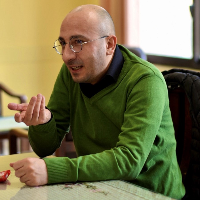"When he left": the narrative of the lives of abandoned women
Author(s):
Article Type:
Research/Original Article (دارای رتبه معتبر)
Abstract:
This ethnographic study using semi-structured interview and non-participatory observation and with the help of combined targeted sampling (acute cases and snowball) with 15 women abandoned in the cultural context of one of the suburbs of Isfahan city with a methodological framework inspired by Gerard's theory It is Genet. The findings show that these women used the negative acceleration technique in creating their life stories. Paying attention to the element of time in the narration of these women's lives made us understand the cultural reasons and the role of culture in the passage of time of these women in the narration of their lives. The reason for this is that these women were from the Bakhtiari ethnic group, and in the past history of the Bakhtiari people, the respect, attention, authority and high status of the ancestors and elders of the people, commitment and adherence to traditions and ethnic and cultural values are clearly alive and lasting. and people always build a bridge to their past and remember it. Finally, it can be said that time is a cultural thing that is constructed in the narrative of these women's lives in a new way and according to the cultural context
Keywords:
Language:
Persian
Published:
Pazuhesname - ye Zanan, Volume:15 Issue: 2, 2024
Pages:
1 to 33
https://magiran.com/p2795890
مقالات دیگری از این نویسنده (گان)
-
Alignment of Film and Society: Cancer in Iranian Cinema
, Zahra Lotfi Foroushani*
Journal of Motaleate-e Tatbighi-e Honar, -
Narrating the Lived Experience of Family Counseling in the Perceptive World of Women
Rehane Batani Noushabadi, Behjat Yazdakhasi *, Ehsan Aghababai, Maryam Fatehizadeh
Journal of Social Sciences, -
A Woman between the Sky and Earth: An Ethnographic Study of the Lives of Abandoned Women and Their Understanding of Abandonment in the Cultural Context of One of the Marginal Neighborhoods of Isfahan City
, Ali Hashemianfar *, Hamid Dehghani
Journal of Applied Sociology the University of Isfahan,




